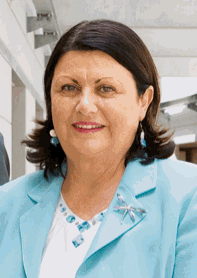|
|
|
|
|
|
|
News & Views item - February 2011 |
![]() Proposal for Extreme Makeover of European Research Funding. (February 11,
2011)
Proposal for Extreme Makeover of European Research Funding. (February 11,
2011)
 When
60-year-old Máire Geoghegan-Quinn was appointed European Research, Innovation
and Science Commissioner it was greeted with some trepidation. She has had no
previous experience in the area of science having represented the Galway West
constituency from 1975 to 1997 in the Irish parliament. Then in 1999 she was
appointed to the European Court of Auditors and in November 2009 she became
Ireland's European Commissioner to be allocated the Research, Innovation and
Science portfolio just twelve months ago.
When
60-year-old Máire Geoghegan-Quinn was appointed European Research, Innovation
and Science Commissioner it was greeted with some trepidation. She has had no
previous experience in the area of science having represented the Galway West
constituency from 1975 to 1997 in the Irish parliament. Then in 1999 she was
appointed to the European Court of Auditors and in November 2009 she became
Ireland's European Commissioner to be allocated the Research, Innovation and
Science portfolio just twelve months ago.
Nevertheless Ms Geoghegan-Quinn has now called for the rebranding and revamping of Europe's Multi-billion Euro Framework Programme, telling the Royal Society on February 7 that what was needed is a replacement enterprise that would combine traditional FP funds and other dispersed European research monies -- and which in her words needs to: "Get focused and get united to get ahead."
Three days earlier a summit was held in Brussels where European Union heads of state for the first time dedicated an afternoon to discussing innovation during which they agreed to finish establishing a “European Research Area” by 2014. In addition they endorsed the creation of E.U.-wide intellectual property rules, and agreed to support an E.U.-wide venture capital fund. There was also agreement that significant simplification of the FP financial regulations was essential to overcome the onerous nature of the current reporting conditions placed on grantees.
ScienceInsider also reports: "As part of this new framework, countries will receive additional funding to invest in their research infrastructure. Geoghegan-Quinn hopes that this additional funding will chiefly help the 10 newest countries to join the European Union, which have complained that despite access to European research funds, their lack of modern science facilities leaves them unable to keep domestic, or attract foreign, scientists."
It remains to be seen just how much of an improvement will eventuate in the design of this next and 8th Framework Program, but if it is significant, it may well have an effect on the relative attractiveness of places like Australia for top European researchers.